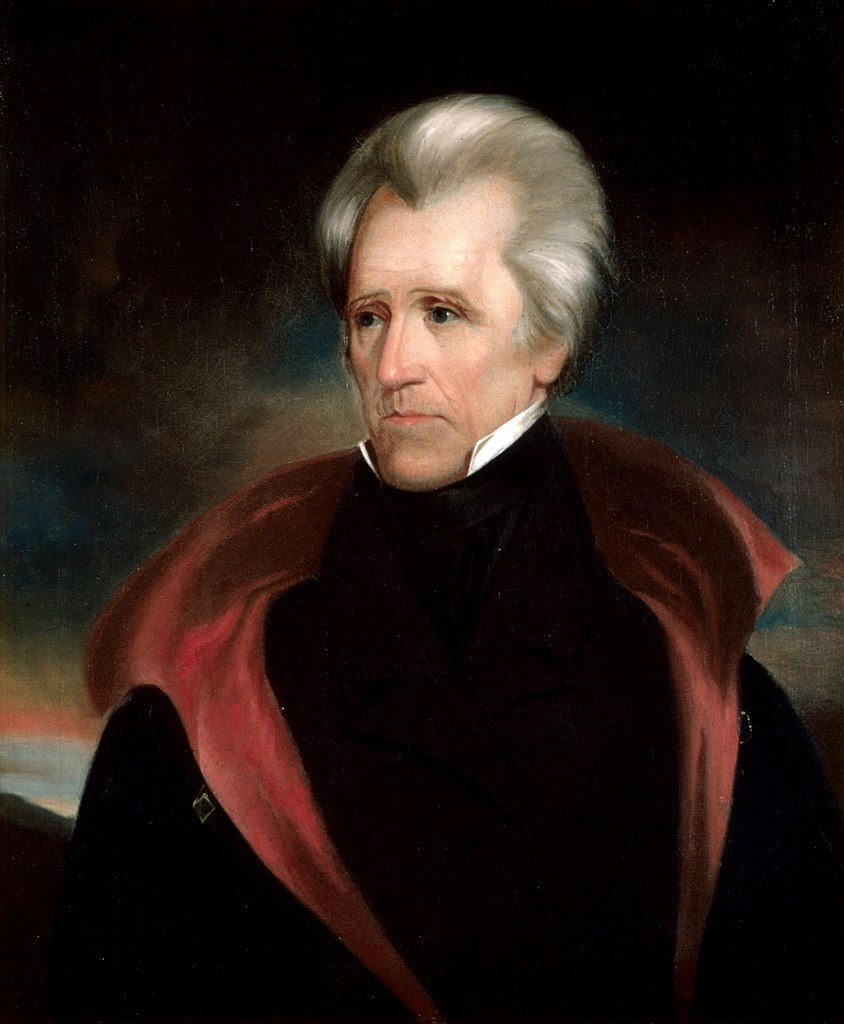More languages
More actions
(Created) Tag: Visual edit |
No edit summary |
||
| Line 15: | Line 15: | ||
== References == | == References == | ||
[[Category:Former heads of state]] | [[Category:Former heads of state]] | ||
[[Category:Genocide perpetrators]] | [[Category:Genocide perpetrators]] | ||
[[Category:Statesian politicians]] | |||
[[Category:Statesian slave owners]] | |||
[[Category:Statesians of English descent]] | |||
[[Category:Statesians of French descent]] | |||
[[Category:Statesians of Scotch-Irish descent]] | |||
[[Category:Statesians of Scottish descent]] | |||
Revision as of 13:45, 22 December 2022
Andrew Jackson | |
|---|---|
 | |
| Born | March 15, 1767 Waxhaw Settlement, British America |
| Died | June 8, 1845 Nashville, Tennessee, United States |
| Nationality | Statesian |
| Political orientation | Settler colonialism |
Andrew Jackson was a Statesian politician who ruled as President of the United States from 1829 to 1837. In addition to owning a slave plantation, he led wars against the Muscogee and Seminoles.[1]
Early life
Jackson was born to Scots-Irish parents in 1767. He studied law in Tennessee and bought a plantation in Nashville with 150 slaves.[1]
Pre-presidency
Jackson organized the admission of Tennessee into the United States in 1796. He spent a year as a senator before becoming a judge on the Tennessee Supreme Court for six years. In 1814, he forced the Muscogee Nation to sign the Treaty of Fort Jackson, ceding 93,000 km² of their land to settlers.
In 1818, as a major in the US Army, he invaded Spanish Florida with a force of 3,000 soldiers to crush the Seminoles and re-enslave Africans who were living among them. Jackson's forces defeated the Spanish colonial government but failed to stop the Seminole resistance.[1]
Presidency
Following Jackson's election as president in 1829, Georgia annexed most of the Cherokee Nation's land. The US Supreme Court ruled that the annexation was illegal but Jackson approved it anyway.[1]
References
- ↑ 1.0 1.1 1.2 1.3 Roxanne Dunbar-Ortiz (2014). An Indigenous Peoples' History of the United States: 'The Last of the Mohicans and Andrew Jackson's White Republic' (pp. 96–110). [PDF] Boston, Massachusetts: Beacon Press. ISBN 9780807000403
